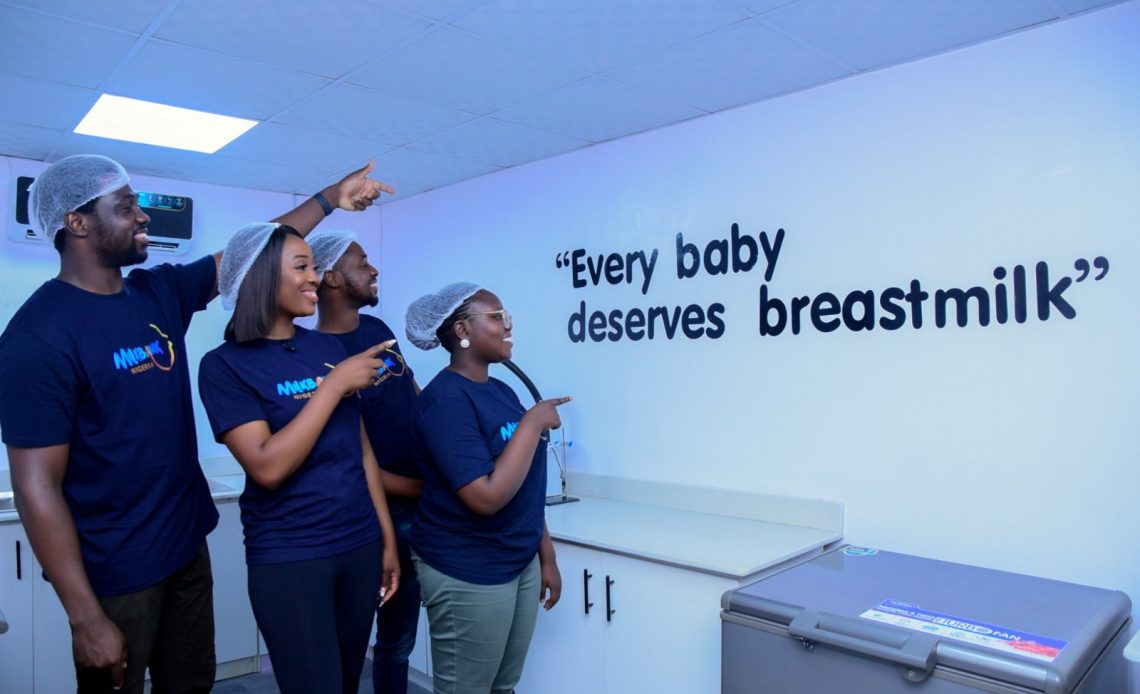By Chibuike Alagboso and Onyinye Oranezi (Lead Writers)
When Kehinde (not real name) set out on the nearly 130km journey from Ibadan to Lagos, he had a clear goal in mind: to get the conviction he required to receive breast milk donated through a breast milk bank. His wife was having challenges with her milk flow at the time and had made the journey previously to the breast milk bank. Their baby had started showing signs of being underweight and constipated, and Kehinde had been reluctant to use the breast milk bank. However, when their baby was readmitted to the hospital, he had to reconsider the option again. This time, he was not only convinced, but he also went home with two litres of donor breast milk for their baby.
The Breast Milk Bank, the first in Nigeria, started operations in August 2022 with the aim of reducing Nigeria’s neonatal mortality rate, which currently stands at 35 per 1,000 live births. Preterm births, when babies are born before their expected due date, typically before 37 weeks of gestation, are a significant contributor to neonatal mortality. Forty five percent of all preterm births in 2020 occurred in five countries: India, Pakistan, Nigeria, China, and Ethiopia. India had the highest number of preterm births in 2020 (3.02 million, accounting for over 23% of all preterm births worldwide), with Pakistan, Nigeria, and China Organisation each accounting for more than three-quarters of a million preterm babies in 2020.
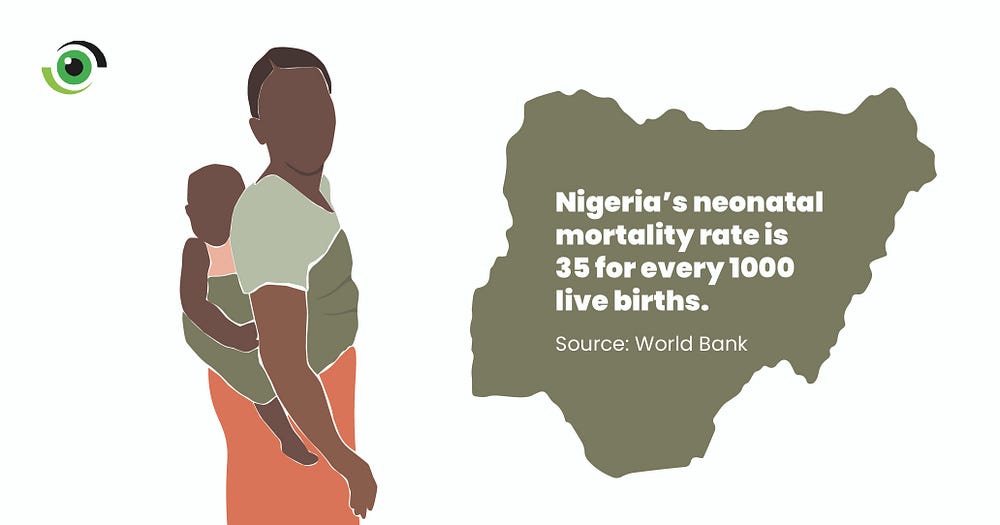
Lack of timely breastfeeding is one of the reasons why these preterm babies die, according to the World Health Organization . However, for Dr. Chinny Obinwanne, medical doctor, lactation consultant and founder of the Milk Booster, these are not mere statistics.
Facing a dire need
While working as a lactation consultant, Obinwanne supported women struggling with breastfeeding, mostly through her breast milk booster products. Her experience and understanding of the critical role breast milk plays in the first days of life, birthed the idea of establishing a breast milk bank. It didn’t make sense to her that Nigeria did not have a breast milk bank as “those babies should be given a chance to live”.
According to Obinwanne, sometime in 2019, several people who knew about her work and plans started contacting her. “They wanted to know if I started the bank because a woman had given birth to premature triplets, died in the process, and the babies were in desperate need of breast milk”. When she reached out to her community of nursing mothers, to inquire if any had stored breast milk that they were willing to donate, many agreed. But she needed to be sure it was safe for the babies. “I asked about the laboratory tests they did before delivery and asked if they were willing to carry out more tests,” she said. However, that evening, she received information that one of the triplets had died, and by the next morning, they had lost another. While other factors may have been at play, Obinwanne said she couldn’t help but think that the babies would have had a fighting chance of survival, if breast milk had been readily available.
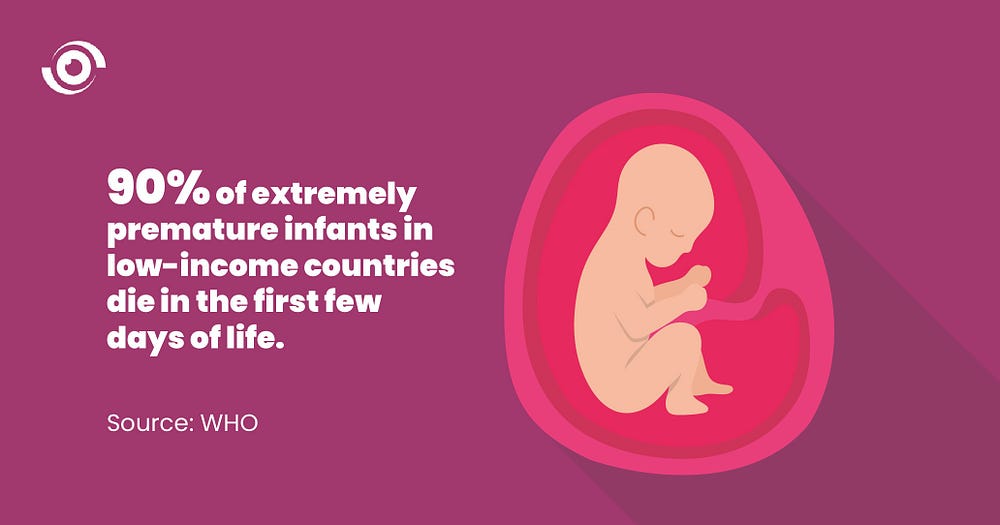
Milk Bank — the Journey
Although Obinwanne and her team officially launched the Breast Bank during the World Breastfeeding Week in August 2022 they didn’t start receiving breast milk till January 2023. They bought their pasteurisation machine from the United Kingdom (UK) and being the first of its kind in the country, it was challenging to find a technician in-country proficient enough to fix some of its features. However, working with recommendations from a breast milk bank in South Africa they found a technician who, with support from the UK-based company via zoom, had the equipment running smoothly.
-
A village to nourish a child: FHI360 community structures provide nutrition for children in Borno
FHI360 is an initiative, supported by grassroots and international partnerships, providing healthcare to Internally Displaced Peoples in four locations. The nourishment of pregnant and lactating mothers, as well as their children, is a main focus. The group disseminates information and provides nutrition counseling in both one-on-one and community support group settings. They also offer vitamins and micronutrient supplements to women and children and create safe breastfeeding spaces and safe spaces for women who have been victims of gender-based violence. Read more
What’s Working
The breast milk is obtained through voluntary donations from mothers who have surplus breast milk and are willing to help babies who don’t have access to their own mother’s milk. So, they are not paid for their contributions, Obinwanne said.
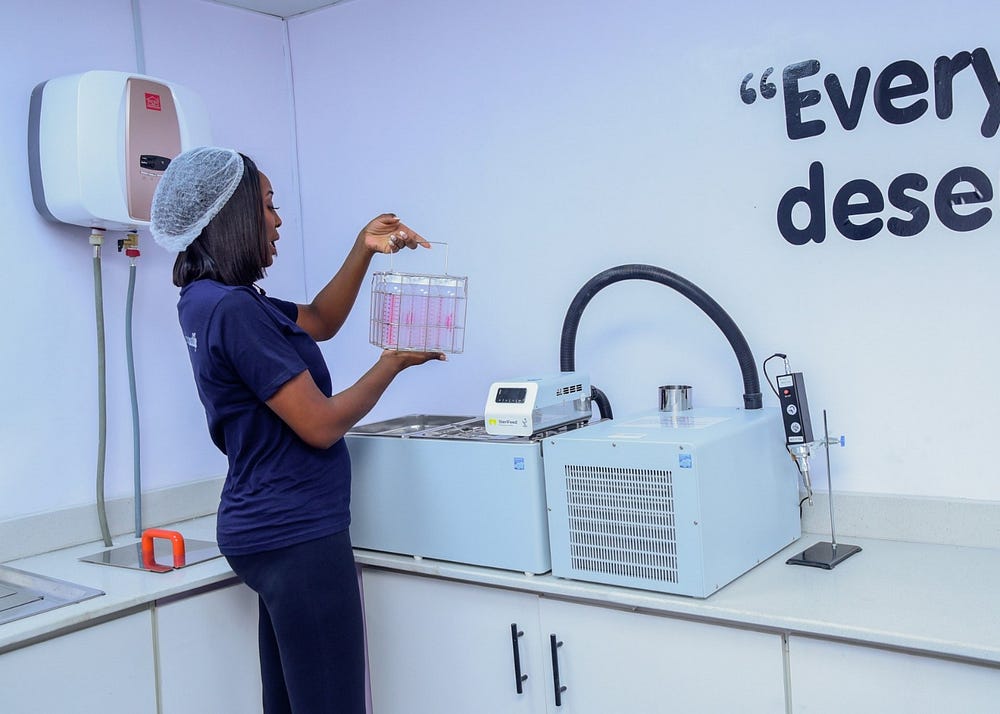
During the first contact, a questionnaire is used to evaluate their eligibility. Once eligibility is established, they proceed to any branch of Clina-Lancet Laboratory — a diagnostic centre the bank partnered with — to screen for communicable diseases like HIV, Hepatitis, and Syphilis. The test results are sent directly to the breast milk bank and once they are confirmed negative, the women are then notified that they can start donating breast milk.
Upon receipt, the breast milk is pasteurised and frozen until needed. Pasteurisation involves heating the breast milk to 62.5oC. This heating process kills all harmful bacteria and viruses in the milk, making it safer for babies. The milk has a shelf life of 12 months, if frozen, Obinwanne said. While they anticipate that within this time, a baby in need will receive the milk, in the rare event that there are unused donations nearing expiration, “we ensure they are donated to motherless babies’ homes before they expire,” she explained.
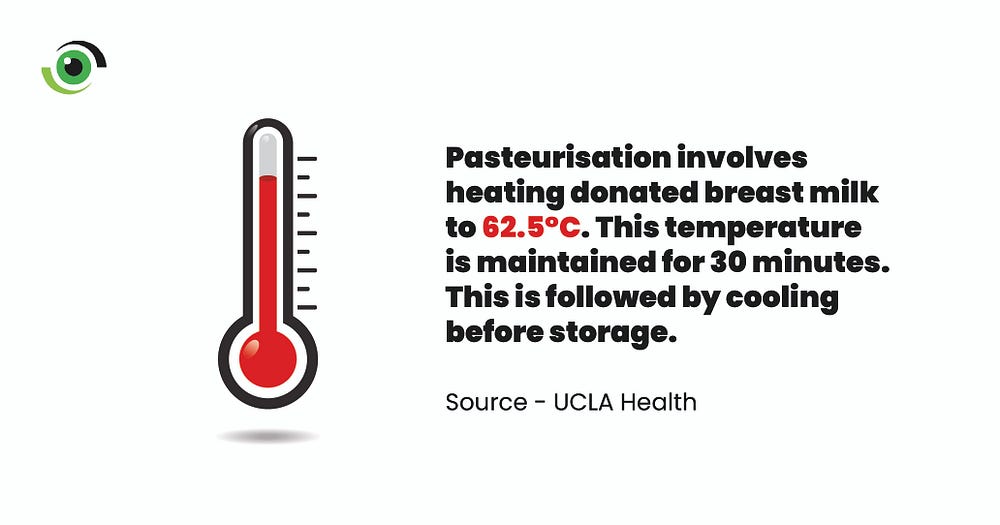
To prevent contamination, the processed breast milk is poured into baby feeding bottles and sealed. It is then packed into a sterile plastic bag with instructions for proper handling. Parents are advised not to transfer it to another container.
Breaking barriers, driving awareness
As of July 2023, the Breast Milk Bank has helped provide breast milk for two babies free of charge. However, more than 20 mothers have expressed interest, completed inquiry forms, but reconsidered when it came time to receive the donated breast milk. Therefore, although their initial intention was to charge a fee for the service, they decided to waive it to foster greater acceptance of the practice. Limited awareness, cultural beliefs and misconceptions are challenges they still deal with, even among trained medical professionals who sometimes prefer to recommend infant formulas over donated breast milk.
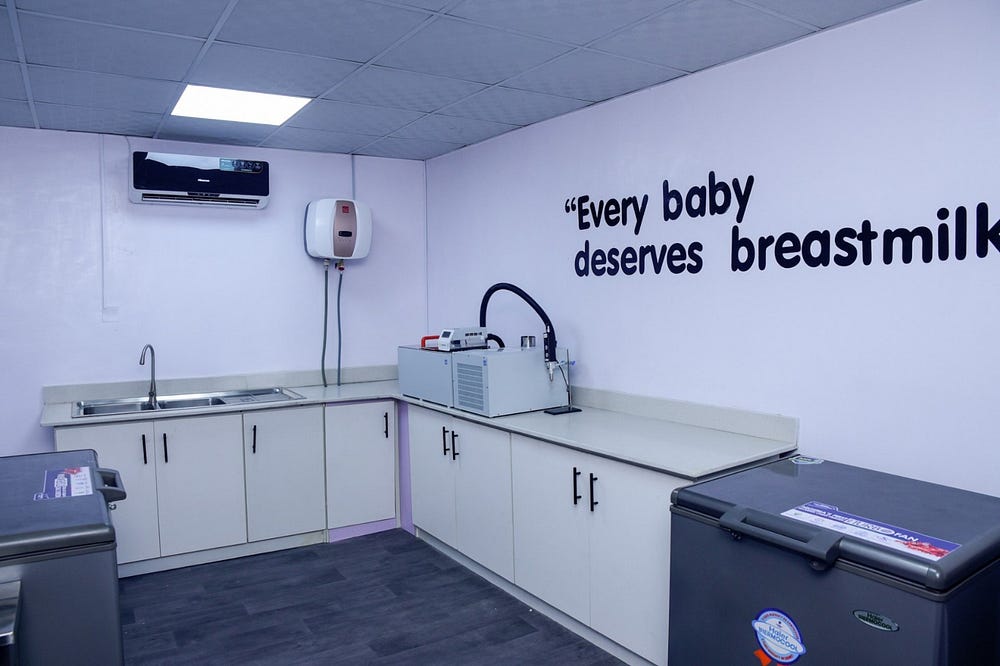
Kemi Olawoye, Chief Executive Officer (CEO) and Co-Founder of the parenting community, Babymigo, said it’s not a discussion that usually comes up, adding that many moms may prefer formula. She confirmed some of the concerns the breast milk bank has experienced regarding acceptance, while acknowledging the importance of breastfeeding. “Breastmilk is best for babies and breastfeeding is the most common challenge new mums face after delivery. Some don’t even establish [breast] milk supply until one week after, so if there are other options mothers can explore, that’s something they can consider,” Olawoye said. She added, “however, there is an emotional aspect to breastfeeding and many mums feel like they have failed when they are unable to establish milk supply. The question will be whether they feel comfortable using ‘another person’s milk’ or giving ‘formula milk’”. That question, she said, still begs for an answer.
Embracing evidence
Healthcare workers in neonatal intensive care units (NICUs) are critical in the survival of preterm babies. Obinwanne said she aims to engage their association to educate and enlighten them on the benefits of pasteurised breast milk. She hopes the partnership will positively impact attitudes towards donated breast milk in Nigeria. However, beyond improving acceptance, this will serve to ensure that a greater number of infants in Nigeria, requiring breast milk during the critical initial hours of life, can access it.
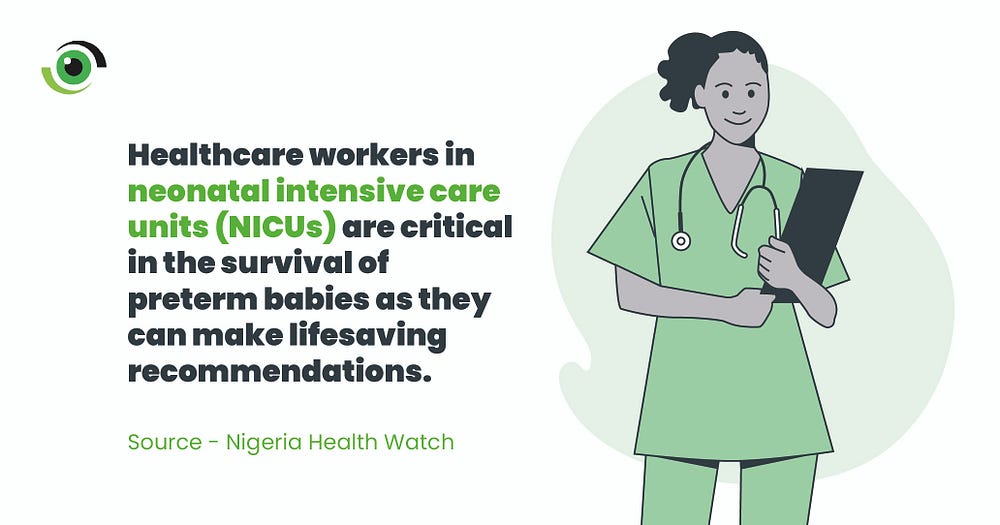
While the Breast Milk Bank team advocate for more acceptance of donated breast milk, Obinwanne said it’s impossible to serve the whole country. So, she wants to partner with hospitals to set up in-house breast milk banks.
While engaging with some healthcare workers, the breast milk bank team said most didn’t believe it’s ideal to recommend donated breast milk for preterm babies whose mothers are yet to start breastfeeding. However, in November 2022, the WHO launched recommendations for caring for preterm or low-birth-weight babies. Mother’s milk and donor human milk are recommended under preventive and promotive care. It is therefore crucial for health workers to embrace evidence while working hard to save the lives of babies.


